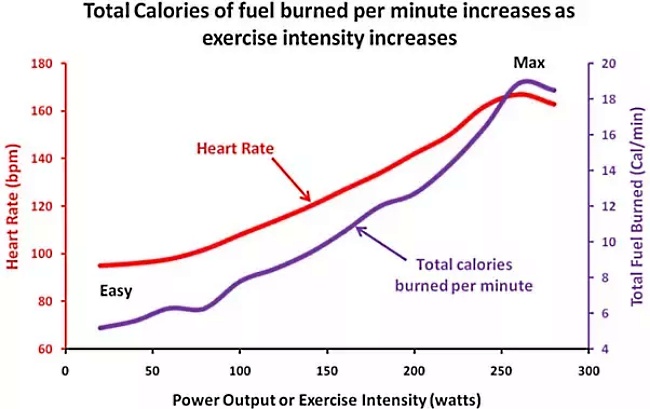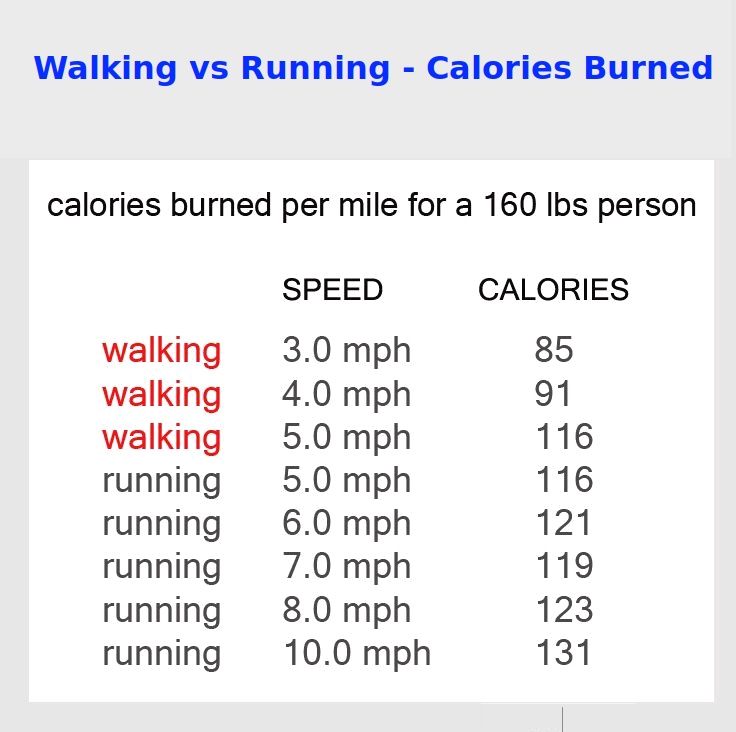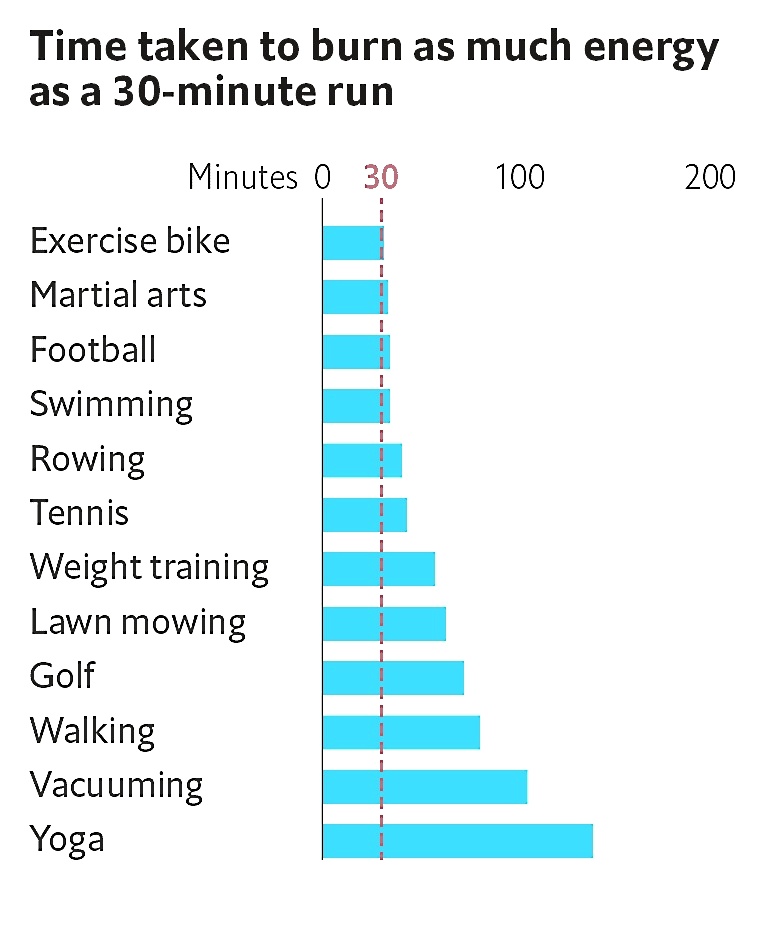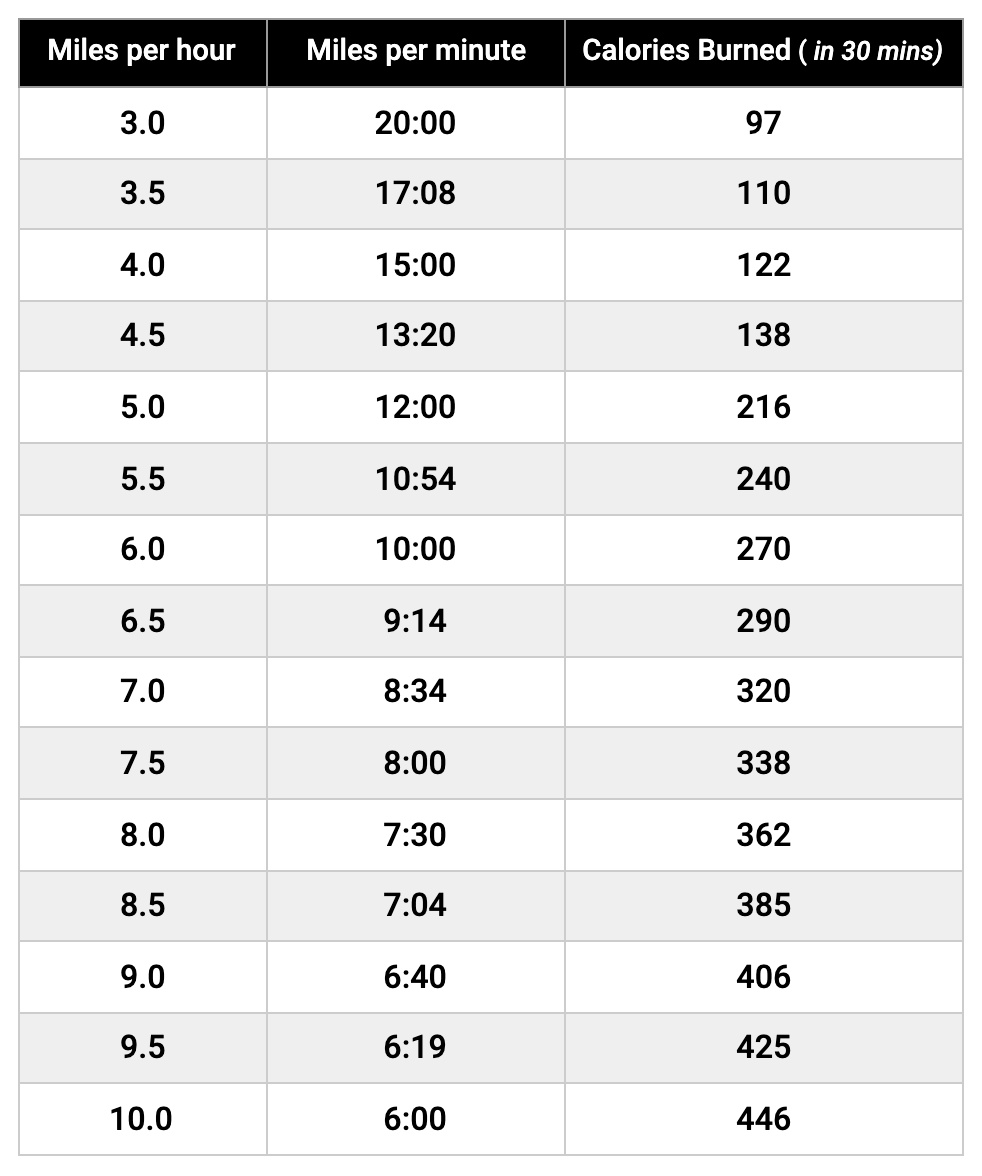Walking Versus Running Which is Better for Weight Loss?
When trying to lose weight is it best to burn calories walking or running? Some people may feel they will lose weight faster or more effectively if they take up running. There are many things to consider apart from the rate at which you burn calories and the time you can devote to exercise. Running is harder on your body, putting extra stress on your knees and feet. But, it also gets your heart pumping harder and is more effective for building aerobic fitness. So what is the answer: Should you Walk or Run?

Minimum Amount of Exercise Maintain Your Health
The Centers for Disease Control and Prevention recommends that people do at least 150 minutes of exercise per week. This equates to about 25 minutes per day for 6 days with one day off. Research has shown that this minimal amount of daily exercise will help reduce the risks of diabetes, cardiovascular disease, osteoporosis and premature death. Other guides suggest that people walk for at least 10,000 steps per day, walking or jogging.

Walking versus Running - Key Issues
Which one burns more calories?
In terms of calories burned per minute, running and jogging is better than walking:
- An 190-pound person burns about 14 calories every minute while jogging, more if running faster.
- The same person burns only about 10 calories every minute while walking.
- So for a 20 minute jog or slow run this 190-pound person will burn about 278 calories.
- For a 20 minute walk the same person would burn about 194 calories.
OK, but you can burn the same amount of calories by walking for longer:
By extending the walk by just 8 minutes extra (to a total of 28 minutes), the 190-pound person would burn the same amount of calories they would on a 20-minute jog.
The simple principle is that total calories burned is essentially dependent on the distance, no matter what rate at which you walk of run. In reality, jogging and running do burn extra calories for the same distance as a walk, but mostly for very fast runs.
For many people, 30 minutes of walking is easier and the body and more enjoyable than 20 minutes of jogging or 15 minutes of fast running with sprints. However, moving faster has many other health benefits, and so a slow stroll may be less desirable.

Increasing Tempo or Speed when Walking or Running Increases Burn Rate
The calorie burn rate for both running and walking can be boosted for a given exercise session time by varying your tempo during your exercise. This is also beneficial for aerobic training. For Interval training or HIIT, you alternate short bursts of higher-intensity work with easier work during the one session. Interval training has been shown to build aerobic fitness faster, to burn extra calories and to boost heart health better than exercise at a continuous medium-pace.
Whether you’re walking or running, try adding 1-3 minutes of slightly faster pace bursts followed by 3-5 minutes of easier efforts. Various studies have shown that even a 10% increase in pace for one-minute bursts, burned about 20 percent more calories than for an even paced session.

Beware of the Overeating After Exercise Trap
Runners or walkers often mysteriously gain weight while training even after the substantially increase their session times or distances. The reason for this is that most people overestimate how many calories they burn during an exercise session. One study found that people overestimated how many calories they burned for a moderate paced run by as much as 300-400 percent. Another study showed that this tendency to overestimate the calories burned led runners to eat 20-40 percent more calories in food eaten after their run, than they burned during the run. So there was no extra loss of calories or weight.
Run or Walk - Which one helps you Lose Weight Faster?
A very large study of 50,000 people provides some suggested answers:
- Men lost significantly more weight from running than walking
- Women who were very overweight also lost significantly more weight from running than walking.
- For women less overweight, walking and running were equally effective for losing weight.
- For both men and women in the highest starting weight categories, walking was half as effective for weight loss benefit.
- However, people who run, especially those who take up running are more prone to injury than walkers. One study found that about 70 percent of runners are sidelined due to some type of injury at least once per year.
How to Start Jogging, Walking or Running and Keep it Up
The big factors in keeping to your exercise plans are:
- Doing something that you enjoy
- Do what feels right for you
- Avoid risk of injuries
- Ensure you allow for adequate breaks and rest periods.
- Develop a staged program increasing the time distance of intensity as you go along.